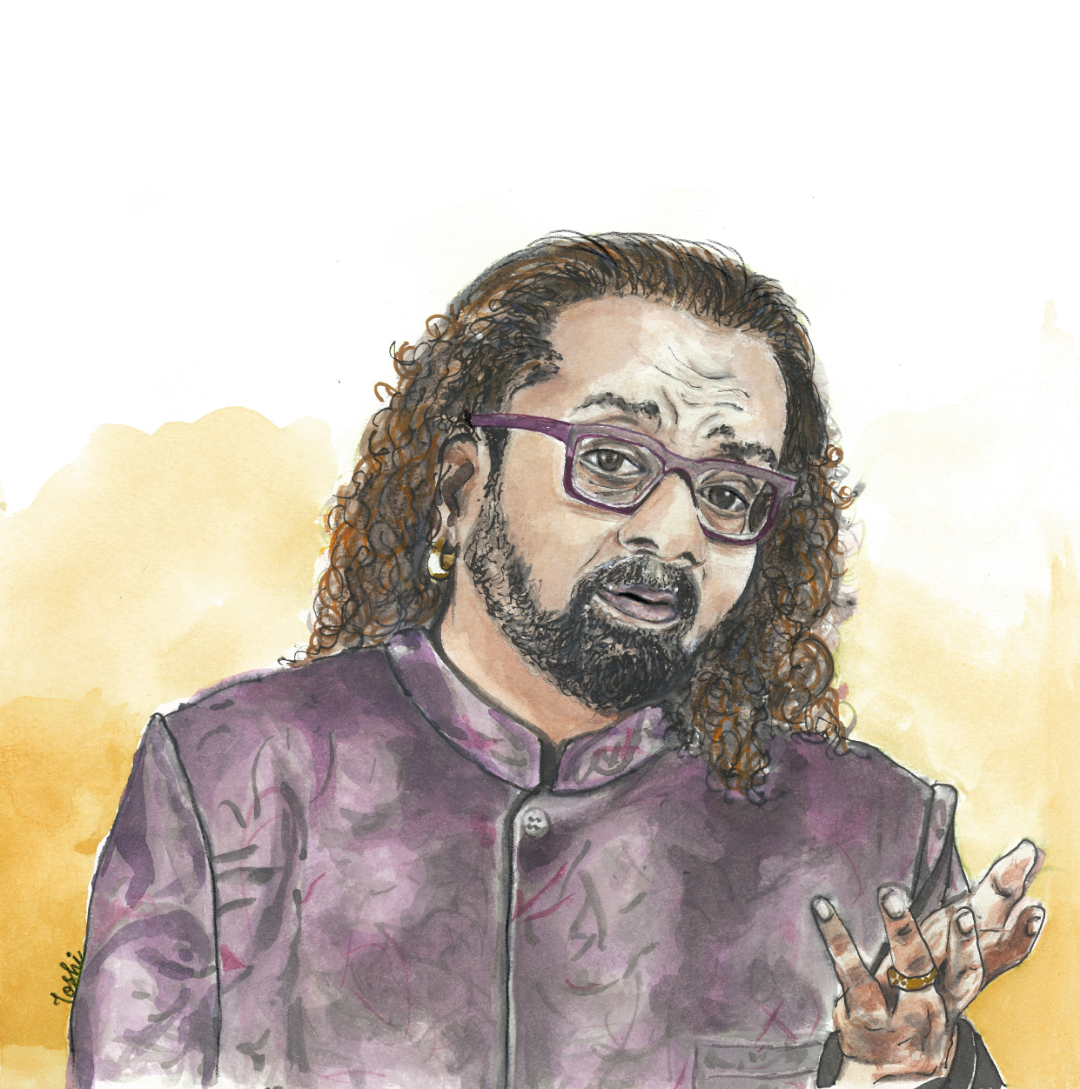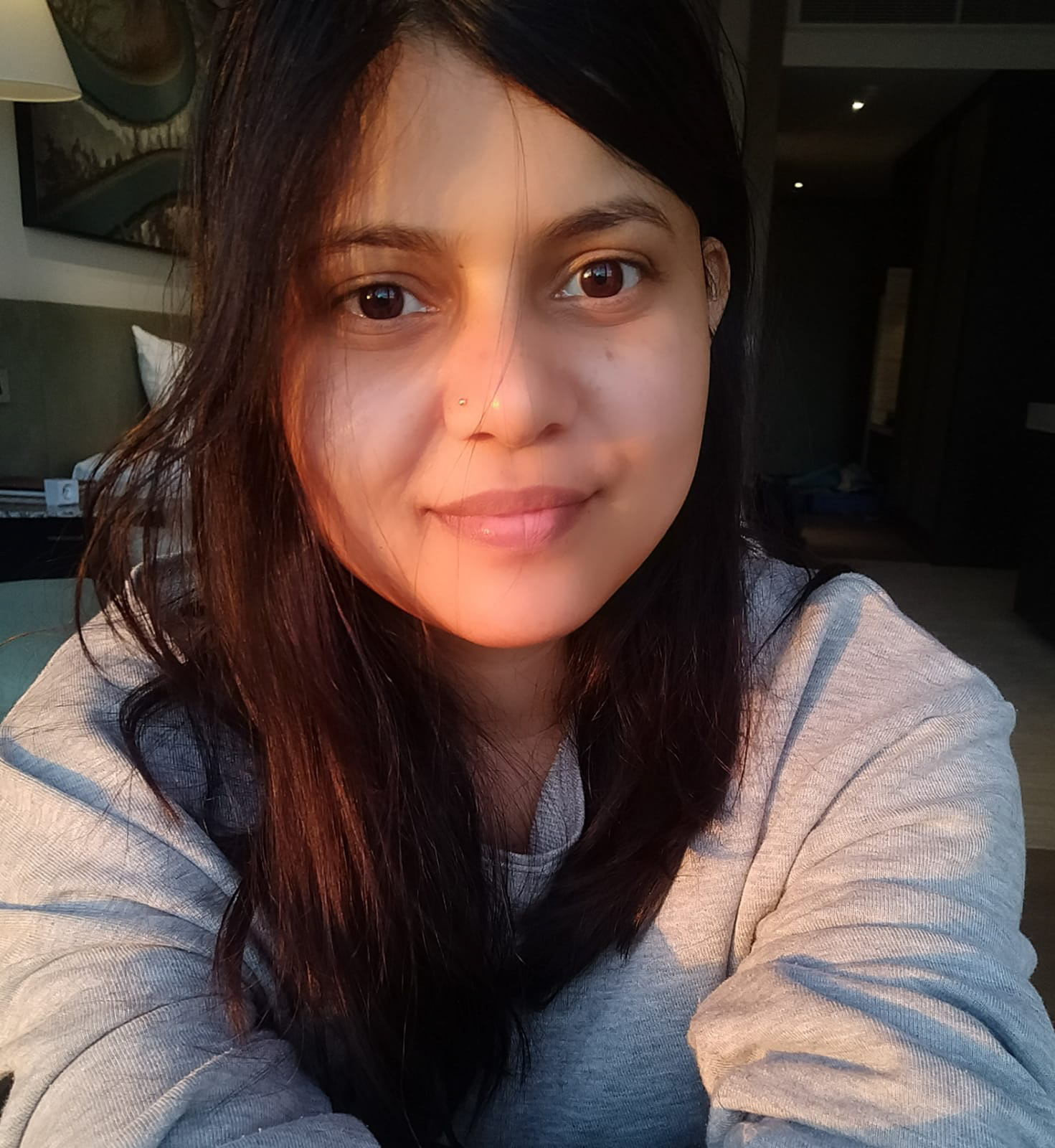Sound, Music and Memories: In conversation with Hariharan
My personal memories are not of sights and smells, but the sounds of music. I first met Hariharan in the early eighties-the music loving son of my sister’s guru. The seventies and eighties was a time filled with rich sounds and pop-rock music. Hariharan is a world renowned musical genius today, but I remember him as a friend I had few but meaningful interactions with, one who shared my love for music all those years ago. This is as much a nostalgic chat with a beautiful voice from my past as it is a tribute to the powerful voice of music in my life.

Prabhu:
I’m delighted to welcome an old boyhood family friend to this chat, a man whose golden voice needs no introduction to the world -Hariharan Anantha Subramani- Hariharan as you are known to everyone, or Ravi as your family and friends call you. Welcome to the Coonoor&Co journal Ravi, and thank you so very much for being here.
Hariharan:
Thank you, thank you Babu.
P:
Ravi, could you share your earliest memories of music and how they shaped your identity today, given that this issue is about the link between sound, music, and memories?
H:
My first memories of music must be in my childhood, hearing my parents and their students singing. My parents conducted classes at home as well as ran a music academy, to which I used to go. At the institute, they taught Carnatic music to over 1500 children. It was the first time I was exposed to music. My father had an old Grundig tape recorder. This was, of course, after a couple of years, maybe three or four years. He was the principal of Shanmukhananda School of Music, and he used to record all the kutcheris, the concerts that used to happen there since he had access, and so I’ve heard all those as well as seen and heard Bhagavatars from South and North.
P:
I only remember that I went to Shanmukhananda just for their coffee and snacks which I had during intervals, I don’t remember so much about the concerts themselves.
H:
Oh yes! Even today, it’s the same. Just yesterday, I had a concert at Shanmukhananda, and I had the bonda with chutney. It’s amazing! I don’t know how they’ve kept the same taste over all these years.
P:
Your mother, Shrimathi Alamelu Mani, is a legendary singer and teacher and is my sister Aruna’s Guru. Your father was also a renowned singer, and your grandfather played the harmonium for Tamil movies. Your Dadar home was a temple of culture and always filled with music. Are there any cherished moments that stand out? Are there any special memories?
H:
Yes, of course. I cherish moments from when my father was alive. We used to stay in Sion Circle near here, and so many Carnatic musicians used to come and visit—TK Murthy Mama, Ramnad Krishna Iyer, and so many legendary musicians. I remember T. Brindamaa and Muktamma visiting—Amma has also learned from them—there used to be a regular flow of visitors.
MS (Subhalakshmi) Amma used to come home, I remember very clearly, I came home from school and suddenly, right there, I saw MS Amma sitting and my mother said “Ai, namaskaram pannu” (‘Ai’ do greet). I straightway did namaskaram- the usual salutations. Suddenly, she (MS) said, ‘Nee padarai illiya? Nee paadu’ (You do sing, right? Sing then). I remember singing something off the top of my head and running away.
P:
And you had no concept – no plan of what to sing then, during those days?
H:
No, no, no, nothing, man. You see, in those days, during my childhood, I did all the usual things-studies, football, cricket, singing. It was always there, it was part of everyday life… like khana khao, gaana gao (eat food, sing songs).
P:
I was telling Aruna about this, and I asked her if she remembered those days. She does, of course, and said she was mesmerised by your voice the moment she first heard you. Of course she remembers so much more, she was your mother’s student.
H:
I remember my first Ghazal concert—it was in the late seventies, seventy-eight or seventy-nine—at the IIT fest. I don’t remember the exact year, but I met Aruna there at the concert, and yes, that is where it started. That is where I began singing ghazals on a public platform.
P:
That is wonderful. At Mood Indigo, at IIT.
H:
Right, Mood Indigo, I forgot the name.
P:
The all-India Sur Singaar competition that opened so many doors for you must be an old yet cherished memory. Do you look back upon those days now?
H:
Of course, of course I do, those were the formation days. What happened was it led me to a bigger platform. Sur Singaar was a very important competition, (which I won), because it just put me onto the filmy duniya. I would say I never thought of being a playback singer, I just wanted to sing well, and I thought why not get a song from here and there. I never thought I would take it as a profession then, but it was because of a lot of competitions and things like that, I slowly began to consider it, felt at some point that this is it, I had to get into it. That was around seventy-seven, seventy-eight. I got my first film song in Gaman – Ajeeb Sa Neha Mujh Par Guzar Gaya Yaaron, and then slowly, one by one, it all began. I was already learning from Ghulam Sir, I had joined him in 1974, and that then also got me deeper into music, because I used to do a lot of riyaaz, so my whole mahol (ambience) changed.
P:
Wonderful! That brings me seamlessly to the next question I have, about riyaaz. Legends like Mehdi Hasan and Jagjit Singh were inspirations, your Guru, Ustad Ghulam Mustafa Khan was your mentor. I know riyaaz is a big part of who you are. When you practise, do you think back to your past mentors and teachers? Can you share some thoughts, perhaps with or about any of them?
H:
The word riyaaz means repetition. When you repeat a phrase a thousand times, you have it stored in your muscle memory, and then it becomes spontaneous. So, to get the spontaneity in your singing, you have to spend hours of repetition and practice. And then you discover the amount of musicality you have in you, and then you know how talented you are and start building on that. Like for example, for me, the word khayaal, which means “imagination”, plays a big part in my music–the way I have sung all my life is with the concept of imagination. The USP of improvising–turning around a melody or a raag is what I work with.
P:
Beautiful. I think it perhaps also comes from a sense of who your mother and father are as well.
H:
Oh yeah, I mean, everything plays a role, you know. In my ghazal singing and film singing, there are also a lot of Carnatic phrases. The tone might be different, but there are roots in Carnatic music. This fusion of Carnatic and Hindustani is what I love to do–I have lived through and learned from both forms of music.
P:
Yes, I understand.
Before we come to the last questions, I’d love to share some personal memories that stand out with you. One is coming to your Dadar home from my college, Podar, which was around the corner, and climbing into your attic studio, which had walls lined with seashells–you used to tell me they made acoustics better.
H:
Right. I used to call it the Toddlers Club actually because you can’t stand there, you’ve got to crawl in.
P:
Ha, yes, and we used to climb a ladder and sit on the floor. And I remember you used to ask me to hum the first line of any song and then you would effortlessly sing the rest of the song’s tune even though you would have never heard it before. We shared a love for Stevie Wonder.
H:
Oh yeah, I remember.
P:
Another memory was the surprise birthday party we had for you at home in Chennai; Lalitha, your wife, landed up, and we had an amazing impromptu session of music in which you and Bombay Jayashree, another dear childhood friend, did a jugalbandi and all of us family and friends sang late into the night. Then there was our Sri Lanka trip and your ghazal concerts at home.
H:
Ah, yes, yes! That evening was amazing. And we went to Sri Lanka, we had an amazing time there.
P:
Ravi, you sing ghazals, classical Hindustani music, contemporary pop as part of Colonial cousins, and of course in films. Ajeeb Saneeha Mujh Par Guzar Gaya Yaaron is absolutely one of my favourites. I know Uyire Uyire is not only legendary, but it’s your song. You have yourself said it is one of your favourites.
Ravi, I can’t let you go without asking you to sing a few lines. I know our listeners would be so grateful to hear an impromptu couple of lines from that song, so before I leave you, can I ask you to sing for us?
H:
Yes, of course, sure!
P:
Thank you, Ravi; it’s been a privilege to have you here on this very special “Sensorium” edition of the Coonoor&Co Journal. When I requested you to come on board, you agreed without hesitation, for which I am so grateful. Thank you so very much for being part of my life and I know you will continue to delight your millions of fans around the world with your musical magic.
H:
It’s my pleasure (man), thank you!


